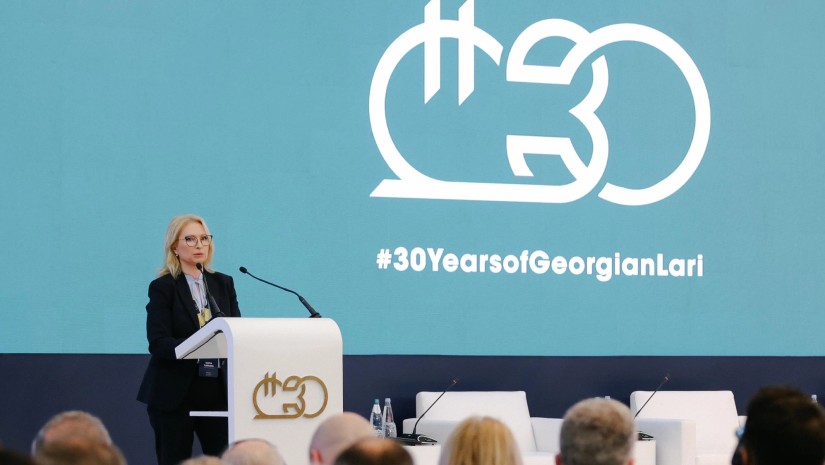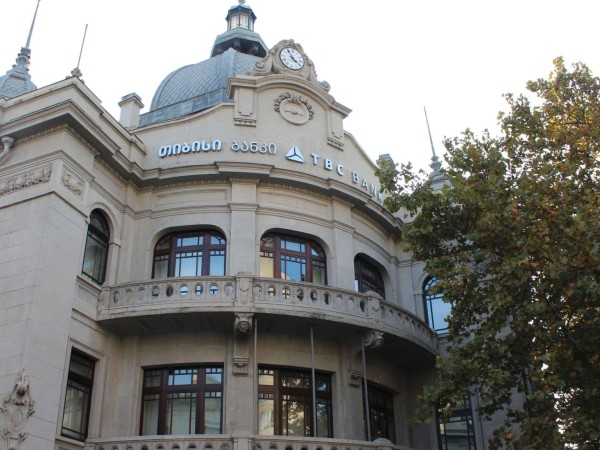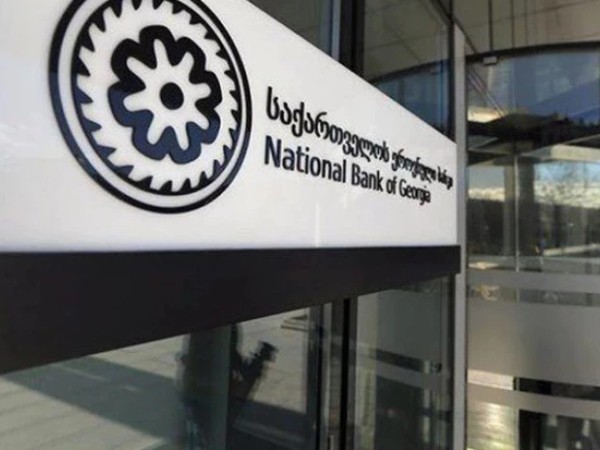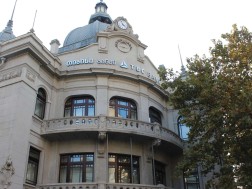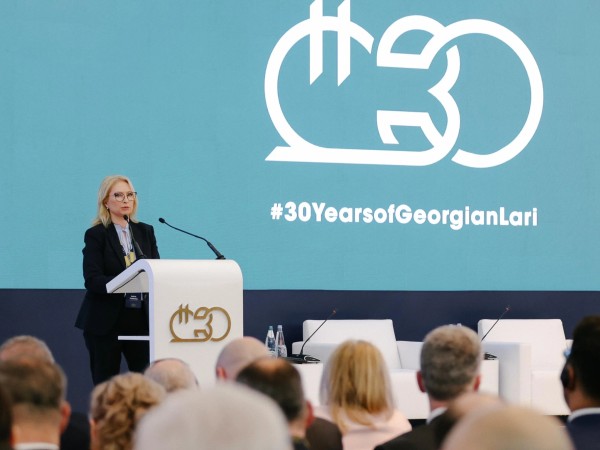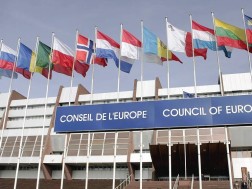Tbilisi (GBC) - “For each of us, the Lari symbolises freedom, unity and national identity,” stated Natia Turnava, Governor of the National Bank of Georgia (NBG).
“Today is October 2. Exactly 30 years ago, on this day in 1995, the Lari was declared the sole legal tender throughout the entire territory of Georgia. Successes and challenges marked the past three decades. During this period, the Lari has fulfilled its primary role: to serve as a dependable and stable currency for economic transactions and the daily lives of our citizens. For each of us, the Lari symbolises freedom, unity and national identity. It worthily continues the 26-century history of Georgian currency, which began with the Kolkhi tetri and stands as clear testament to the ancient civilisation and rich economic heritage of Georgia’s territory. The very name of our currency comes from our history – ‘Lari’ is a word expressing property, treasure and wealth,” noted Natia Turnava.
According to her, the introduction of the Lari was a milestone event in the country’s developmental history.
“The Lari is one of the most significant symbols of our statehood. Moreover, it is the cornerstone of independent monetary policy. Following the restoration of Georgian statehood on April 9, 1991, the foundations were laid for an independent monetary and credit system in the country. Particularly noteworthy in this regard are the laws adopted on August 2 of that same year by the Supreme Council of the Republic of Georgia, ‘On the National Bank’, ‘On Monetary and Credit Regulation’, and ‘On Banks and Banking Activities’.
It was precisely from this period that preparatory work officially began on creating the design, name and technical parameters of the Georgian currency. In this process, we must gratefully acknowledge the support and assistance of the International Monetary Fund. The IMF remains to this day one of our most important and trusted partners.
Above all, the Lari brought us stability. Secondly, it strengthened our sovereignty. Subsequently, as an achievement of independent Georgia, it became a symbol of unity and freedom. Now is the time for a new chapter to be written in our history, and this will depend upon the actions we undertake. It will depend upon the trust of the Georgian people.
I am pleased that public confidence in the Lari is growing, against a backdrop of economic stability, in which the consistent policy of larisation, effective monetary policy and supervisory approaches pursued by the National Bank undoubtedly play a major role. The tangible results are evident, whilst decades ago 70-80 per cent of deposits were held in foreign currency, today almost half of all deposits are in Lari (50 per cent), whilst larisation of deposits by residents of our country has increased even further, to 57 per cent,” stated Natia Turnava.
According to the NBG Governor, it should be noted that the National Bank has marked this anniversary year of the Lari with numerous events and activities.
“We hosted a major international forum, relaunched publication of our scientific-analytical journal, minted commemorative coins in the denominations of 5 Lari in gold, silver and copper-nickel, and issued a jubilee banknote in the denomination of 50 Lari.
Furthermore, at the initiative of the National Bank, Georgian Post issued a thematic postal stamp, whilst the Georgian Public Broadcaster (GPB) produced a documentary film depicting the life and work of Iason Lortkipanidze, the first Governor of the State Bank of Georgia.
This year, Economist’s Day in Georgia was traditionally marked with a conference dedicated to the 30th anniversary of the Lari’s entry into circulation. As part of the anniversary celebrations for the Lari, a range of activities are planned throughout the rest of the year, including initiatives in the educational sector.
Once again, I congratulate all of Georgia on the 30th anniversary of the Lari. Everyone who was involved in the process of implementing monetary reform. Those who prepared the economic foundations for the introduction of the Georgian Lari and made even the smallest contribution to this most important undertaking for the Georgian state,” declared Natia Turnava.

